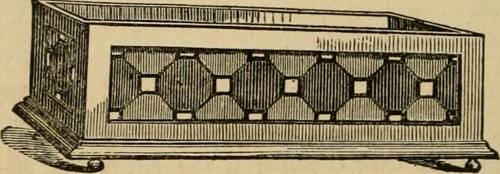
FAQ About Indoor Plant Water Soluble Nutrients

What are water-soluble nutrients for indoor plants?
Water-soluble nutrients are fertilizers that can dissolve in water and are readily absorbed by the plant roots when applied. They provide essential macro and micronutrients required for plant growth and health. These nutrients are often applied through watering systems or directly to the soil, allowing easy uptake by plants.

Why are water-soluble nutrients important for indoor plants?
Water-soluble nutrients are important because they offer a fast-acting solution to deliver essential nutrients directly to indoor plants. This is crucial for plants grown in controlled or soilless environments, where nutrients may not naturally replenish themselves. Quick absorption ensures that plants receive immediate nutrients necessary for healthy growth.

How often should I apply water-soluble nutrients to my indoor plants?
The frequency of applying water-soluble nutrients depends on the type of plant, growth stage, and the specific nutrient formulation. Generally, it’s recommended to apply these nutrients every 1-2 weeks during the growing season. It's important to follow the recommendations on the fertilizer label and adjust based on the plant's response.

What are the benefits of using water-soluble nutrients over solid fertilizers for indoor plants?
Water-soluble nutrients offer several benefits compared to solid fertilizers. They ensure a rapid delivery and absorption of nutrients, allow precise nutrient management tailored to plant needs, and reduce the risk of nutrient buildup in the soil which can harm plants. This form is also suitable for indoor plants as it can be easily adjusted and measured.

Can water-soluble nutrients be used for all types of indoor plants?
Yes, water-soluble nutrients can generally be used for all types of indoor plants. However, it is crucial to consider the specific nutrient requirements of each plant species. Some plants may have specific nutritional needs and could require tailored nutrient formulations, so always check guidelines specific to your plants.

How do I apply water-soluble nutrients to my indoor plants?
Water-soluble nutrients are typically applied by mixing the recommended amount with water and then watering the plants with this solution. It can be administered through watering cans, drip irrigation systems, or any effective watering method that ensures the nutrient solution reaches the root zone.

Are there any risks associated with using water-soluble nutrients for indoor plants?
While beneficial, overuse or improper application of water-soluble nutrients can lead to nutrient burn, where the plant’s roots are unable to process the excess nutrients leading to poor plant health. It is also possible for salts to accumulate in the soil, which can harm the plant over time. Thus, it’s important to follow recommended dosages and application frequencies.

What ingredients are typically found in water-soluble plant nutrients?
Water-soluble plant nutrients commonly contain nitrogen (N), phosphorus (P), and potassium (K), often referred to as N-P-K numbers on fertilizer labels. They may also include trace elements such as magnesium, calcium, iron, and zinc, which are essential for complete plant nutrition.

Can water-soluble nutrients help with pest control in indoor plants?
While water-soluble nutrients are not designed for pest control, maintaining proper nutrition can indirectly support pest resistance by promoting stronger plant growth and enhancing the plant's natural defense mechanisms. However, for specific pest issues, dedicated pest control measures should be applied.

How do I know if my indoor plants need water-soluble nutrients?
Signs your indoor plants may need water-soluble nutrients include yellowing leaves, stunted growth, and poor flowering or fruiting. Routine checks and understanding the natural nutrient requirements of your specific plant types will help determine whether nutrients are lacking.

Can I mix different brands of water-soluble fertilizers for my indoor plants?
It is generally not recommended to mix different brands of water-soluble fertilizers unless you are sure of their compatibility. Mixing can lead to imbalanced nutrients or chemical reactions that might harm your plants. It's best to use one product at a time as per recommendations.

Are organic water-soluble nutrients available for indoor plants?
Yes, organic water-soluble nutrients are available and are a good choice for those seeking sustainable and environmentally friendly gardening options. These products are often derived from natural sources like compost tea, seaweed extracts, or fish emulsions.

How does the N-P-K ratio on water-soluble fertilizers affect indoor plants?
The N-P-K ratio indicates the relative proportions of nitrogen, phosphorus, and potassium in a fertilizer. Each element supports different plant functions: nitrogen promotes leafy growth, phosphorus is key for root and flower development, and potassium aids overall plant health. Selecting the right ratio is essential for meeting the specific growth needs of your plants.

Can I make my own water-soluble nutrient solution at home?
Yes, you can make a water-soluble nutrient solution using commonly available ingredients like fish emulsion or kelp meal for organic options or by diluting standard garden fertilizers according to labeled instructions for precise applications. Homemade solutions should be used cautiously to ensure they meet plant nutritional needs without causing harm.

Do water-soluble nutrients expire, and how should they be stored?
Water-soluble nutrients can lose effectiveness over time, particularly if they are not stored correctly. It's best to keep them in a cool, dry place, away from direct sunlight, and tightly sealed to prevent moisture absorption. Always check for an expiration date and follow storage guidelines provided on the product packaging.

What is the role of micronutrients in water-soluble fertilizers for indoor plants?
Micronutrients such as iron, zinc, copper, and manganese are essential for plant health even though they are required in smaller quantities than macronutrients. They play critical roles in functions such as chlorophyll production, enzyme activity, and disease resistance, contributing to overall plant vigor and health.

Is it possible to over-fertilize indoor plants with water-soluble nutrients?
Yes, over-fertilizing with water-soluble nutrients can occur and often leads to nutrient burn, leaf browning, and root damage. This can warp or stunt plant growth. Thus, it is important to adhere strictly to application guidelines, monitor plant health, and adjust feeding schedules as necessary.

Should I use different water-soluble nutrient formulations during different seasons?
It can be beneficial to adjust nutrient formulations according to seasonal growth phases. More nitrogen might be used in the spring to support new growth, while phosphorus and potassium may be emphasized during flowering or fruiting seasons. Tailoring nutrients to plant needs at different stages supports healthy development throughout the year.

Can water-soluble nutrients be harmful to pets if ingested?
While water-soluble nutrients are primarily made for plants, they can be harmful if ingested by pets, potentially causing digestive upset or poisoning due to chemical components. It's critical to keep fertilizers out of reach of pets and ensure that treated plants are not accessible until the solution dries or is absorbed.

What should I do if I accidentally over-apply water-soluble nutrients to my indoor plants?
If you've accidentally applied too much nutrient solution, flush the soil with ample water to help leach out the excess salts and prevent damage. Ensure good drainage to avoid waterlogging, and adjust future applications carefully to prevent recurrence of over-fertilization issues.
